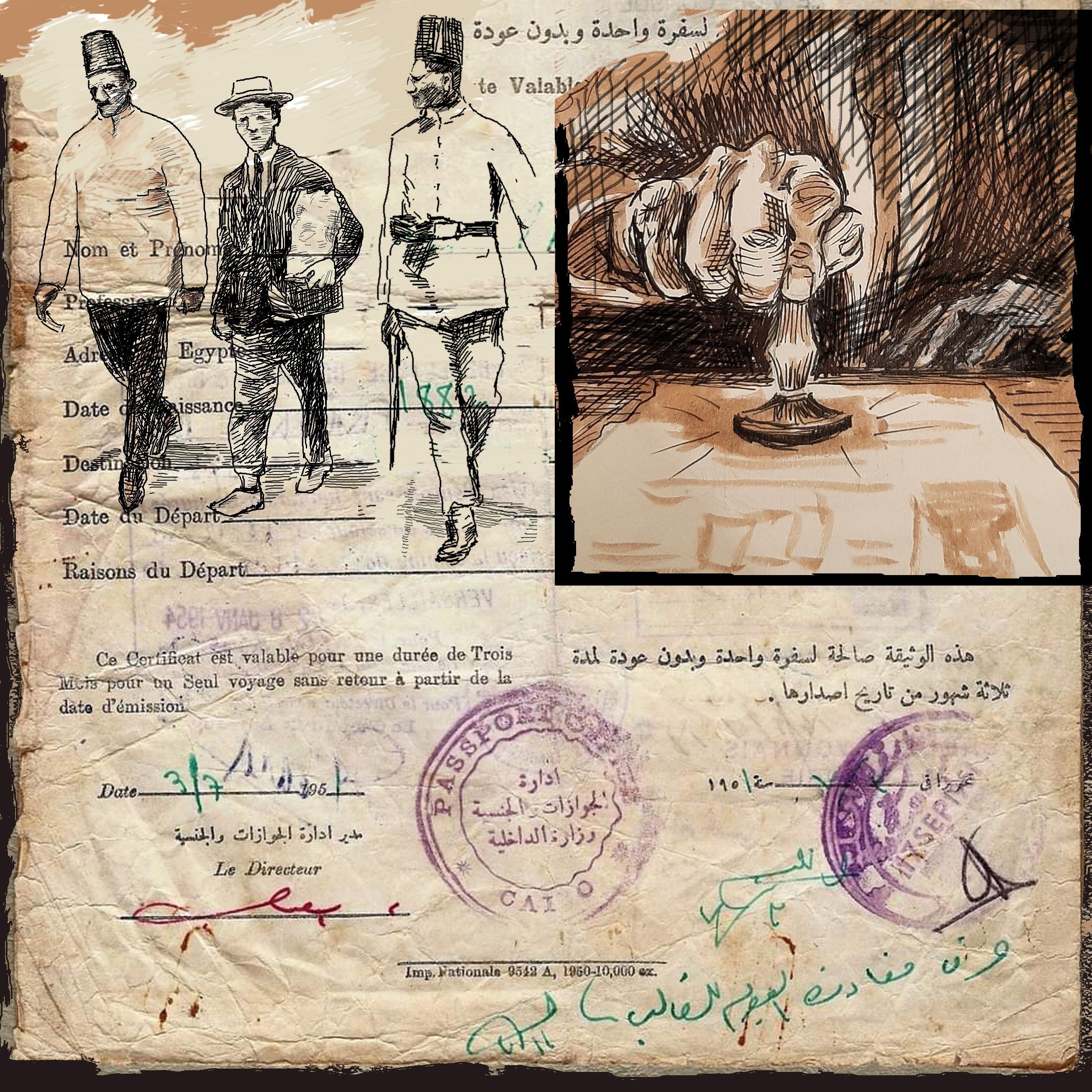Rim Naguib's research looks at the history of deportation from Egypt. In the beginning, she focused on the colonial roots of the practice of deportation based on ideology and ethnicity. Socialists, communists and labor activists of "foreign extraction" were deported by the British authorities in their campaign against “Bolshevism in Egypt,” a practice that became inscribed in the laws and state policy of post-colonial Egypt. Her current research, that she will introduce in this seminar, treats the period following the full nationalization of the Egyptian police apparatus and the acquisition of judicial sovereignty in 1937. She contends that the continued practice of policing through deportation has led to a general securitization and politicization of nationality and foreigners’ residence.
Enacting Sovereignty: Policing Nationality and Foreigners’ Residence in Post-Colonial Egypt
Rim Naguib (EUME Fellow of the Fritz Thyssen Foundation 2020/21), Chair: Malak Labib (IFAO Cairo / EUME Fellow 2018-20)

The security apparatus of the post-colonial Egyptian state instrumentalized nationality and foreigners’ residence legislations and practices as a technique of political and ideological policing, and consequently, embarked on precarizing the status of naturalized and stateless former Ottoman subjects and foreign residents. It sought to establish its full authority over the inclusion in, and the exclusion from the Egyptian nation, and over the presence of non-naturalized residents on Egyptian territory, as matters of public security and national sovereignty. Foreigners, as well as real or imagined connections to foreign entities, came to be increasingly perceived and framed by the state’s executive body as a source of danger that needed to be minimized and controlled. Naguib's research however, shows that this process of securitizing the boundaries of nationality and residence was not uncontested. She examined dozens of lawsuits against the decisions of the Ministry of Interior to deny applications for Egyptian nationality and against deportation orders. She found evidence that the judiciary often provided a space to resist the exclusionary powers of the executive. Nevertheless, the executive powers of the security apparatus were amplified since the 1940s by the militarization of state and economy during World War II and by the 1948 entry into a state of war with Israel, further politicizing and securiticizing the nationality and residence of Jews and “foreigners”. By the end of the period of study, in 1956, the security apparatus had prevailed. Naguib suggests that this process may constitute a useful angle from which to examine the state’s hostile policies towards Jews and other minority groups and their subsequent exodus from Egypt in mid-century.
Rim Naguib is a Fritz-Thyssen Stiftung fellow at EUME. She received her Phd in Sociology from Northwestern University (2016) and her MA from Sciences Po Aix-en-Provence (2006). She was a post-doctoral fellow with the Arab Council for the Social Sciences, then a EUME fellow since 2019. Her research interests address three different, but not unrelated, fields: the genesis and development of Egyptian patriarchal nationalism; the securitization of nationality practices and foreigners' residence in post-colonial Egypt; and the colonial roots of the practice of ideological deportation in interwar Egypt. Outside strict academia, she is interested in various mediums and venues to popularize suppressed histories and the critical social sciences, among which is her graphic interpretation of stories she finds in the archives. She has co-translated several historical graphic novels into Arabic.
The conversation will take place at and in cooperation with AL.Berlin. An on-site attendance will be available only for a limited number of pre-registered participants. The conversation will be broadcasted via Zoom. Please register in advance via eume(at)trafo-berlin.de to receive the login details. Depending on approval by the speakers, the Berliner Seminar will be recorded. All audio recordings of the Berliner Seminar are available via the account of the Forum Transregionale Studien on Soundcloud.
